Ever wondered why alligators, with their fierce jaws and apex predator vibes, rarely take a bite out of capybaras? It’s weird, right? These two animals often hang out in the same watery areas in South America, but it’s like they’ve got some unspoken truce. If you’re scratching your head over this, you’re not alone.
Let’s dig into the why behind this strange coexistence, what it says about predator-prey dynamics, and why it matters more than you think.
The Big Question: Why Aren’t Capybaras on the Menu?
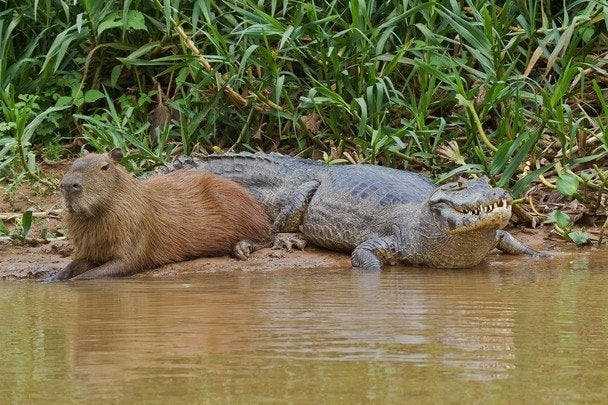
Here’s the deal: Alligators don’t eat capybaras as often as you might expect because of a mix of reasons, from the capybara’s physical defenses to the alligator’s picky eating habits. But to fully understand it, we need to break it down into manageable chunks.
1. Capybaras Are No Easy Snack
Capybaras are huge—like, up to 140 pounds of huge. They’re the size of a big dog, and attacking something that large can be risky business for any predator. Alligators aren’t looking for a fight; they’re looking for an easy meal.
- Risk vs. Reward: Why mess with a big, strong capybara when smaller, weaker prey is swimming around?
- Strength in Numbers: Capybaras live in groups. If one’s in danger, others sound the alarm, barking like dogs. This confuses predators and gives the capybara a head start.
Think of it like this: If you’re at a buffet, would you go for the easy-to-grab chicken wings or the massive turkey that’s hard to carve? Same logic here.
2. Capybaras Are Water Ninjas
Here’s something wild: Capybaras are amazing swimmers. They’ve got webbed feet and can hold their breath underwater for up to five minutes. When danger strikes, they dive in and disappear.
- They’ll swim away, leaving predators in their wake.
- They’re also strategic about their habitat, staying near dense vegetation for quick escapes.
Alligators are good swimmers, but capybaras have the agility advantage in water, making them tough to catch.
3. Alligators Are Opportunists, Not Daredevils
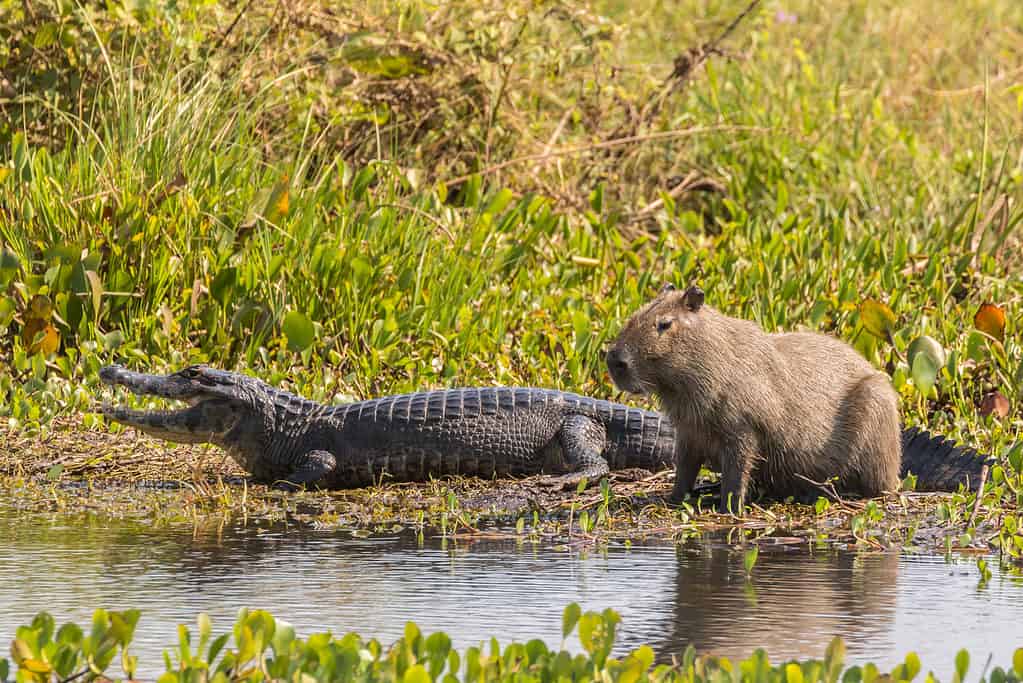
Alligators follow a simple rule: Don’t work harder than you have to. Their diet is diverse—fish, birds, turtles, smaller mammals—but the key is “smaller.”
- Energy Conservation: Attacking a big capybara means expending more energy, and predators don’t like wasting calories.
- Plenty of Other Options: There’s no shortage of food in their shared habitats, so why risk injury for a capybara when easier meals are available?
4. Capybaras and Alligators: A Case of Mutual Respect?
This might sound strange, but capybaras and alligators may benefit from each other’s presence. How?
- Capybara Grazing: Capybaras keep the vegetation in check, maintaining a balanced ecosystem. This helps alligators indirectly by supporting other prey populations.
- Symbiosis: Alligators might scare away capybara predators, and in return, capybaras don’t completely trash the ecosystem.
It’s not exactly a friendship, but it’s like two neighbors respecting each other’s space.
What This Tells Us About Nature
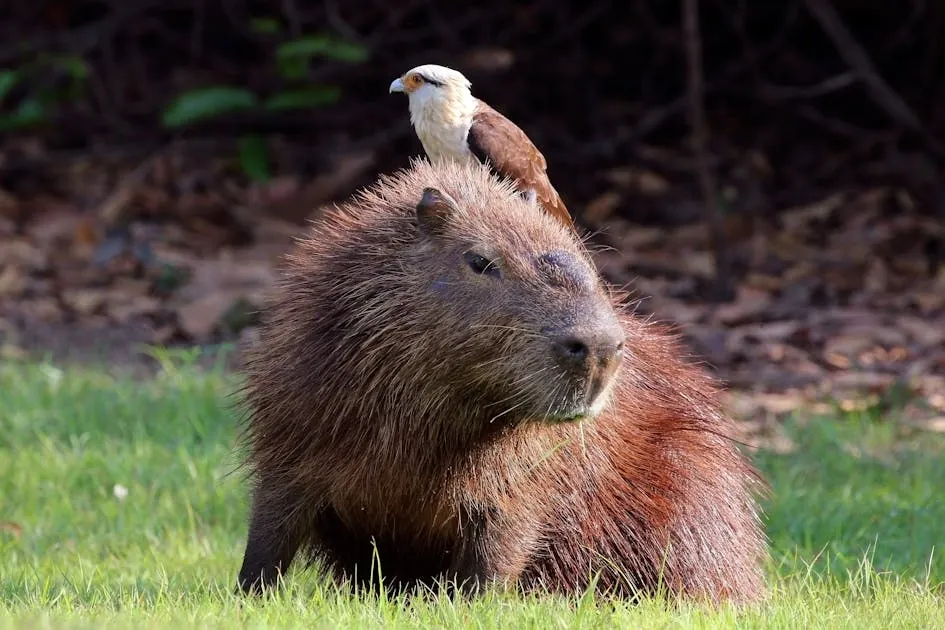
This isn’t just about animals; it’s about balance. Predators and prey evolve together, finding ways to coexist. The capybara-alligator relationship is proof of that.
- Risk Aversion in Predators: Nature is all about efficiency. Predators don’t take unnecessary risks because survival is a marathon, not a sprint.
- Defensive Adaptations: Prey animals like capybaras develop behaviors (like group living and water escapes) that help them avoid becoming lunch.
FAQs About Alligators and Capybaras
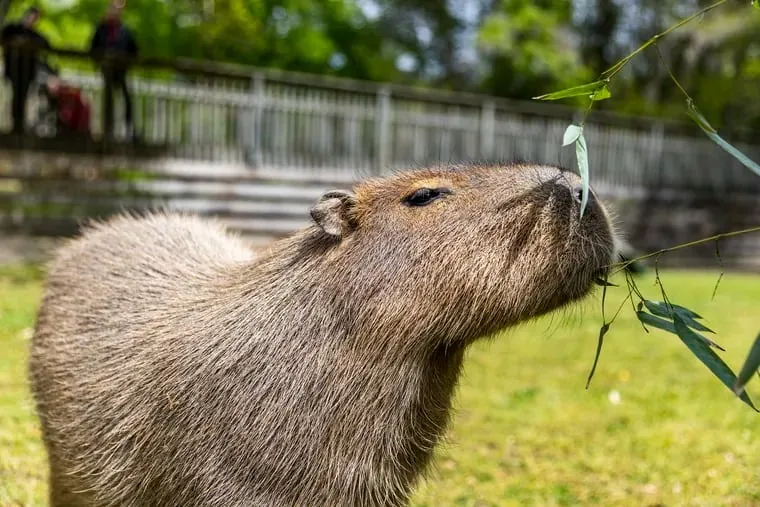
Do alligators ever eat capybaras?
Yes, but it’s rare. Most attacks happen on young or injured capybaras when they’re vulnerable.
Where do alligators and capybaras live together?
They share habitats in South America, especially in wetlands, rivers, and marshy areas.
Why don’t capybaras fight back?
They’re more about escape than confrontation. Capybaras rely on speed, swimming skills, and their social group to stay safe.
Final Takeaway: A Lesson in Coexistence
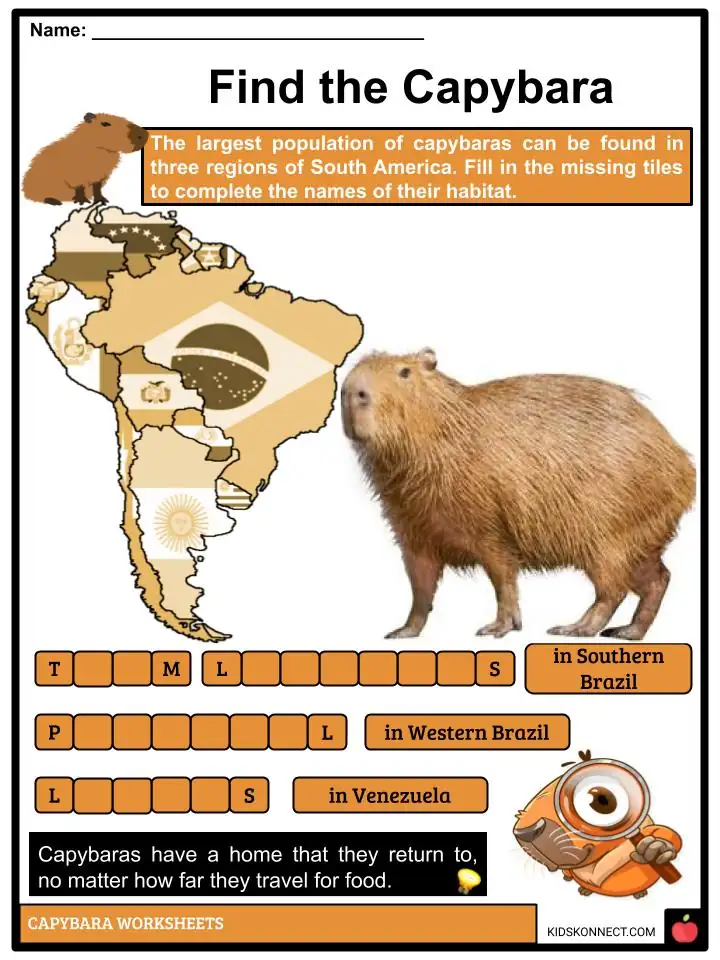
Here’s what’s fascinating: The capybara-alligator relationship isn’t just about one avoiding the other. It’s about how nature balances risk, reward, and survival strategies.
If you take anything away from this, it’s this: Nature is smarter than we think. Whether it’s about sharing habitats or knowing when to walk (or swim) away, there’s a lot we can learn from these animals.
So next time you see a meme about alligators and capybaras “hanging out,” remember—it’s not just funny. It’s a glimpse into one of nature’s coolest partnerships.
And hey, if you ever find yourself in a tough spot, channel your inner capybara: Stay calm, swim fast, and keep your crew close.
